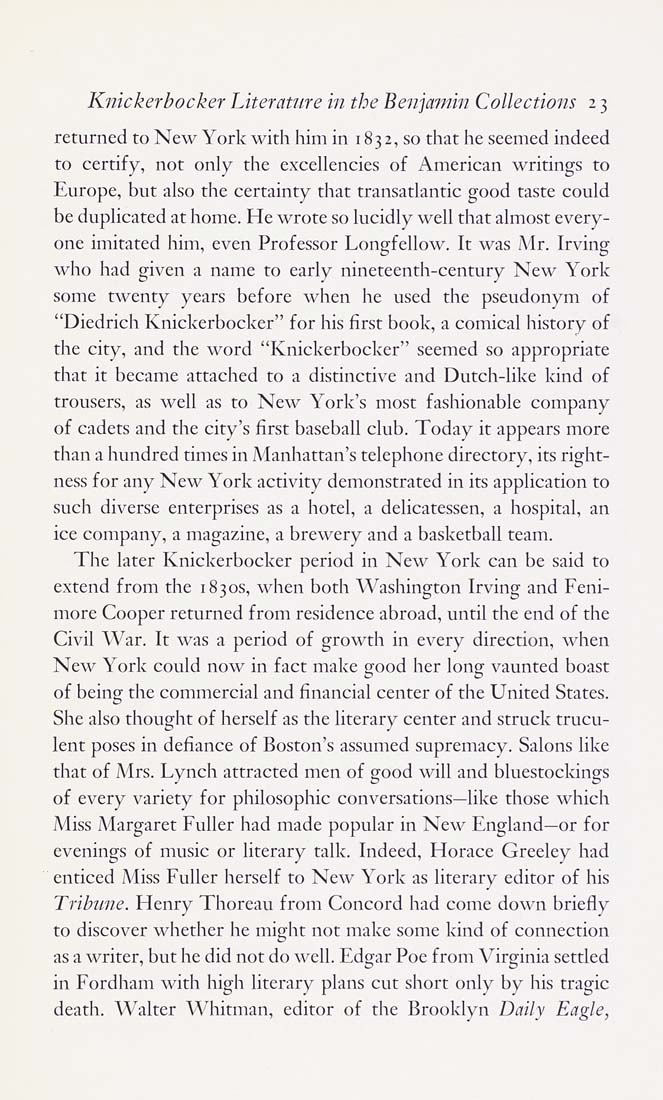Columbia Library columns (v.9(1959Nov-1960May))
(New York : Friends of the Columbia Libraries. )
|
||
|
|
|
|
| v.9,no.2(1960:Feb): Page 23 |

Knickerbocker TJteratiire in the Benjamin Collections 13 returned to New York with him in 18 3 2, so that he seemed indeed to certify, not only the excellencies of American writings to Europe, but also the certainty that transatlantic good taste could be duplicated at home. He wrote so lucidly well that almost every¬ one imitated him, even Professor Longfellow. It was Mr. Irving who had given a name to early nineteenth-century New York some twenty years before when he used the pseudonym of "Diedrich Knickerbocker" for his first book, a comical history of the city, and the word "Knickerbocker" seemed so appropriate that it became attached to a distinctive and Dutch-like kind of trousers, as well as to New York's most fashionable company of cadets and the city's first baseball club. Today it appears more than a hundred times in Manhattan's telephone directory, its tight¬ ness for any New York activity demonstrated in its application to such diverse enterprises as a hotel, a delicatessen, a hospital, an ice company, a magazine, a brewery and a basketball team. The later Knickerbocker period in New York can be said to extend from the 1830s, when both ^^'ashington Irving and Feni¬ more Cooper returned from residence abroad, until the end of the Civil War. It was a period of growth in every direction, when New York could now in fact make good her long vaunted boast of being the commercial and financial center of the United States. She also thought of herself as the literary center and struck trucu¬ lent poses in defiance of Boston's assumed supremacy. Salons like that of Mrs. Lynch attracted men of good will and bluestockings of every variety for philosophic conversations—like those which Miss Margaret Fuller had made popular in New England—or for evenings of music or literary talk. Indeed, Horace Greeley had enticed Miss Fuller herself to New York as literary editor of his Tribune. Henry Thoreau from Concord had come down briefly to discover whether he might not make some kind of connection as a writer, but he did not do well. Edgar Poe from Virginia settled in Fordham with high literary plans cut short only by his tragic death. Walter Whitman, editor of the Brooklyn Daily Eagle, |
| v.9,no.2(1960:Feb): Page 23 |







